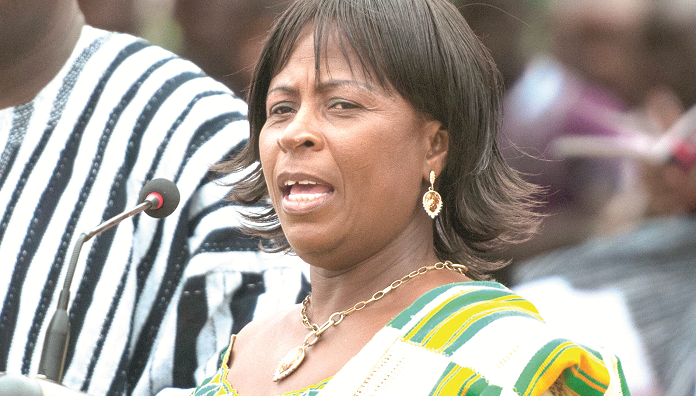The upcoming Akwatia by-election, scheduled for Tuesday, September 2nd, has become a focal point of political contention between Ghana’s ruling National Democratic Congress (NDC) and the opposition New Patriotic Party (NPP). The seat became vacant following the demise of the NPP incumbent, Ernest Yaw Kumi, and the ensuing contest between the NDC’s Lawyer Bernard Bediako Baidoo and the NPP’s Solomon Kwame Asumadu carries significant weight in the broader political landscape. Comfort Doyoe Cudjoe, the Deputy Majority Chief Whip and MP for Ada, has expressed unwavering confidence in an NDC victory, predicting a substantial margin of success. Her assertion rests on the premise that the NDC candidate is better positioned to foster development within the constituency due to alignment with the ruling government. This alignment, she argues, will facilitate a smoother flow of resources and projects, unlike an opposition MP who would face inherent challenges in collaborating effectively with the current administration.
Madam Cudjoe’s confidence extends beyond mere optimism, bordering on a strong conviction that the NPP’s current parliamentary strategy hinders their effectiveness in delivering tangible benefits to their constituencies. She criticizes the NPP’s frequent recourse to “press conferences and walkouts,” characterizing these actions as distractions from the core duty of representing the people and lobbying for their needs. This critique alludes to the recent parliamentary conduct of the minority NPP, which has often resorted to boycotts and public pronouncements to express dissent, a tactic that Madam Cudjoe implies is unproductive and ultimately detrimental to the constituents they represent. She contrasts this approach with the NDC’s focus on development, highlighting the efforts of NDC MPs in securing projects and resources for their respective constituencies.
The by-election in Akwatia is framed as a referendum on the effectiveness of the two parties’ approaches. Madam Cudjoe’s argument posits that electing an NDC candidate ensures seamless integration with the government’s development agenda, enabling the constituency to benefit directly from ongoing initiatives and future plans. Conversely, she portrays an NPP victory as a potential setback for Akwatia, suggesting that an opposition MP would be less effective in securing resources and driving development within the constituency. This argument directly appeals to the voters’ desire for tangible improvements and progress, framing the NDC as the party best equipped to deliver on these expectations.
Central to Madam Cudjoe’s argument is the contrast between the NDC’s focus on development and the NPP’s perceived preoccupation with parliamentary theatrics. She paints a picture of NDC MPs actively engaged in lobbying for projects and resources, effectively leveraging their position within the ruling party to benefit their constituencies. On the other hand, the NPP is portrayed as mired in unproductive political maneuvering, prioritizing symbolic protests over substantive engagement with the government. This narrative attempts to cast the NDC as the pragmatic and results-oriented party, while depicting the NPP as more concerned with political posturing than with the tangible needs of the electorate.
The rhetoric employed by Madam Cudjoe reflects a broader political strategy aimed at solidifying the NDC’s position and undermining the NPP’s credibility. By emphasizing the NDC’s commitment to development and juxtaposing it with the NPP’s perceived obstructionism, she seeks to portray the NDC as the party of progress and the NPP as an impediment to meaningful change. This narrative is designed to resonate with voters who prioritize tangible results and view political squabbles as a distraction from the real issues facing the nation. The by-election in Akwatia thus becomes a symbolic battleground for these competing visions, with the outcome potentially influencing public perception of both parties in the lead-up to future elections.
Ultimately, the Akwatia by-election serves as a microcosm of the larger political dynamics at play in Ghana. The contest between the NDC and the NPP is framed as a choice between two distinct approaches to governance: collaborative engagement versus adversarial opposition. Madam Cudjoe’s pronouncements underscore the NDC’s strategy of highlighting its commitment to development while simultaneously portraying the NPP as a disruptive force. The outcome of this by-election will not only determine the immediate representation of Akwatia but also contribute to the ongoing narrative surrounding the effectiveness and legitimacy of the two major political parties in Ghana.














